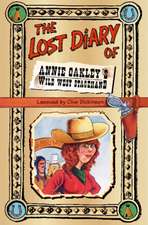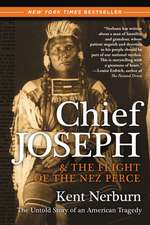The Perils of Peace: America's Struggle for Survival After Yorktown
Autor Thomas Flemingen Limba Engleză Paperback – 29 sep 2008
On October 19, 1781, Great Britain's best army surrendered to General George Washington at Yorktown. But the future of the 13 former colonies was far from clear. A 13,000 man British army still occupied New York City, and another 13,000 regulars and armed loyalists were scattered from Canada to Savannah, Georgia. Meanwhile, Congress had declined to a mere 24 members, and the national treasury was empty. The American army had not been paid for years and was on the brink of mutiny.
In Europe, America's only ally, France, teetered on the verge of bankruptcy and was soon reeling from a disastrous naval defeat in the Caribbean. A stubborn George III dismissed Yorktown as a minor defeat and refused to yield an acre of "my dominions" in America. In Paris, Ambassador Benjamin Franklin confronted violent hostility to France among his fellow members of the American peace delegation.
Thomas Fleming moves elegantly between the key players in this drama and shows that the outcome we take for granted was far from certain. With fresh research and masterful storytelling, Fleming breathes new life into this tumultuous but little known period in America's history.
Preț: 113.47 lei
Nou
Puncte Express: 170
Preț estimativ în valută:
21.71€ • 23.66$ • 18.30£
21.71€ • 23.66$ • 18.30£
Carte tipărită la comandă
Livrare economică 19-25 aprilie
Preluare comenzi: 021 569.72.76
Specificații
ISBN-13: 9780061139116
ISBN-10: 0061139114
Pagini: 368
Dimensiuni: 135 x 203 x 21 mm
Greutate: 0.3 kg
Editura: HarperCollins Publishers
Colecția HarperPerennial
ISBN-10: 0061139114
Pagini: 368
Dimensiuni: 135 x 203 x 21 mm
Greutate: 0.3 kg
Editura: HarperCollins Publishers
Colecția HarperPerennial
Textul de pe ultima copertă
On October 19, 1781, Great Britain's best army surrendered to General George Washington at Yorktown. But the future of the 13 former colonies was far from clear. A 13,000-man British army still occupied New York City, and another 13,000 regulars and armed loyalists were scattered from Canada to Savannah, Georgia. Meanwhile, Congress had declined to a mere 24 members, and the national treasury was empty. The American army had not been paid for years and was on the brink of mutiny.
In Europe, America's only ally, France, teetered on the verge of bankruptcy and was soon reeling from a disastrous naval defeat in the Caribbean. A stubborn George III dismissed Yorktown as a minor defeat and refused to yield an acre of “my dominions” in America. In Paris, Ambassador Benjamin Franklin confronted violent hostility to France among his fellow members of the American peace delegation.
Thomas Fleming moves elegantly between the key players in this riveting drama and shows that the outcome we take for granted was far from certain. With fresh research and masterful storytelling, Fleming breathes new life into this tumultuous but little known period in America's history.
In Europe, America's only ally, France, teetered on the verge of bankruptcy and was soon reeling from a disastrous naval defeat in the Caribbean. A stubborn George III dismissed Yorktown as a minor defeat and refused to yield an acre of “my dominions” in America. In Paris, Ambassador Benjamin Franklin confronted violent hostility to France among his fellow members of the American peace delegation.
Thomas Fleming moves elegantly between the key players in this riveting drama and shows that the outcome we take for granted was far from certain. With fresh research and masterful storytelling, Fleming breathes new life into this tumultuous but little known period in America's history.
Recenzii
“As riveting and suspenseful…it is ultimately inspiring, this is history the way we all wish it could be written.” — Richard N. Smith, author of Patriarch: George Washington and the New American Nation
“No one understands the Revolutionary Era better. No one brings it to life with such amazing insight and intimacy.” — John C. McManus, author of The Deadly Brotherhood: The American Combat Soldier in World War II
“A remarkable achievement, brilliant in conception and illuminating in the way in which heroes and villains…walk off the page.” — Charles Bracelen Flood
“[A]n engaging and lively narrative.” — Tom McGuire, author of Battle of Paoli and The Philadelphia Campaign
“[A] meaningful story about America’s past that compels readers to rethink their understanding of American identity.” — Michael P. Federici, professor of Political Science, Mercyhurst College
“Terrific narrative history.” — Terry Golway, New York Post
“Fleming is one of America’s most prolific and insightful historians.” — Newark Star Ledger
“Riveting and suspenseful…This is history the way we all wish it could be written-and experienced.” — Richard Smith, author of Patriarch
“One of the five best books about presidential administrations.” — Wall Street Journal
“No one understands the Revolutionary Era better. No one brings it to life with such amazing insight and intimacy.” — John C. McManus, author of The Deadly Brotherhood: The American Combat Soldier in World War II
“A remarkable achievement, brilliant in conception and illuminating in the way in which heroes and villains…walk off the page.” — Charles Bracelen Flood
“[A]n engaging and lively narrative.” — Tom McGuire, author of Battle of Paoli and The Philadelphia Campaign
“[A] meaningful story about America’s past that compels readers to rethink their understanding of American identity.” — Michael P. Federici, professor of Political Science, Mercyhurst College
“Terrific narrative history.” — Terry Golway, New York Post
“Fleming is one of America’s most prolific and insightful historians.” — Newark Star Ledger
“Riveting and suspenseful…This is history the way we all wish it could be written-and experienced.” — Richard Smith, author of Patriarch
“One of the five best books about presidential administrations.” — Wall Street Journal











